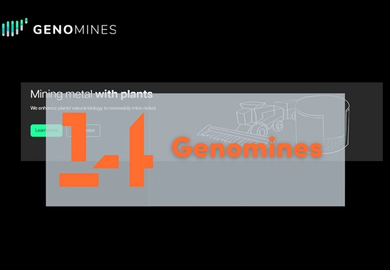Genomines
Developing biotechnology to turn plants into metals
What is the Challenge?
The electrification of cars, homes and grids comes with the sad fact that mining the materials needed is extremely slow and pollutive. As a whole, the mining sector emits 4-7% of global greenhouse gas and generates devastating levels of water and soil contamination. And yet, to meet electrification goals according to the IEA, overall metal output will need to grow by 6 times and nickel output by 19 times. The opening of a new nickel mine can take up to 22 years just to become operational. Is it possible to find a sustainable solution to the increased nickel demand whilst retrieving it quicker and in a less harmful way?
